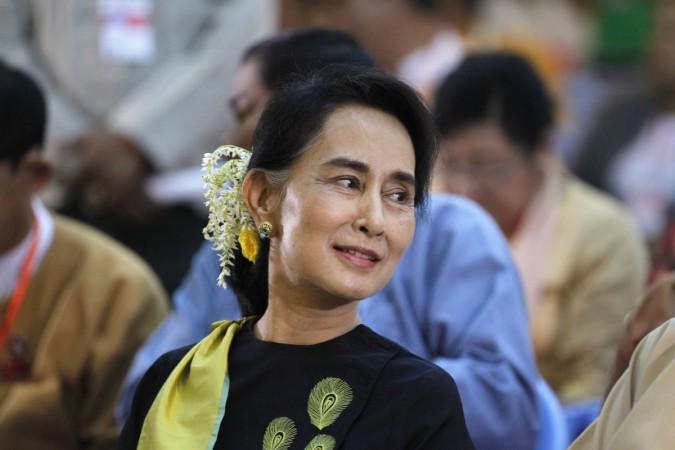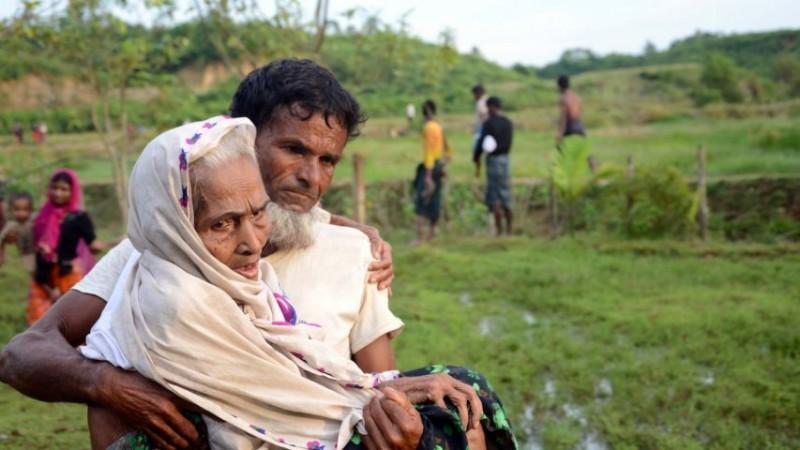
The Nobel-winning leader of Myanmar Aung San Suu Kyi has finally broken her silence on the Rohingya refugee crisis by saying her country is not afraid of "international scrutiny" of the way it has handled the Rohingya issue and that she felt deeply for the people who have suffered in the conflict which has drawn international attention.
Suu Kyi's reaction to the crisis which has earned her brickbats from across the globe, especially since she herself had once been a symbol of resistance against tyranny in Myanmar. Naypyitaw's uncompromising stance on the issue, nevertheless, confirms one thing: the nation-states today are too assertive and adamant as well to indulge in any soft gestures that would be seen as something not compatible with its own interests.
That Suu Kyi chose to remain silent over what the UN has called "ethnic cleansing" is not a real surprise. The leader might have been a symbol of freedom and fight against tyranny in the past but today, she must don a different mantle – a more conservative one – if she wants to continue as a top icon in her own country. If she disregards the alignment with the stances of her government as well as the people over the "foreigner" Rohingya Muslims, the 72-year-old leader will run a high risk of getting isolated in her own country. This is disturbing to hear but this the truth about the language in which power speaks.
Myanmar is still not a democracy and Suu Kyi can do very little
For those who feel disappointed by the fact that Myanmar has shown little concern for the Rohingya Muslims despite its transition to democracy, it is nothing less than living in the fool's paradise. Myanmar's military junta's quest for political reforms was more aimed at achieving international advantages to suit its domestic situation like economic decline. The aim to go out of China's influence and make a better usage of the ASEAN for its own economic uplift and also get rid of the West's sanctions over its poor human rights records propelled Myanmar towards executing political reforms.
The initiative was more of a crust exercise and did not really imply that Myanmar has turned into a genuine bottom-up democracy. The key zones of the country's politics are still controlled by the military and though Suu Kyi has the public mandate in her favour, the real power is only exercised by the military and there is very little the Nobel Peace Prize-winner can do in this regard. If she dares to condemn the military over the Rohingyas who the common Myanmarese never trust, it would not be seen as a crusade for human rights but indulgence in anti-national activities. After years of struggle, an ageing Suu Kyi can't really afford to turn a villain in her own land.

Nation-states have become more assertive now and ruthlessly back their own goals
The episode also reiterates the world order of current times. In the Cold War days, nation-states had abided by certain limitations of the two-camps situation and had very little room to assert their own stances. Myanmar had displayed the guts of quitting the shelter of the Non-Aligned Movement (NAM) in 1979 saying it was too non-aligned to be a part of the NAM. If it could have spoken out its mind in those intense days of the Cold War, it is no surprise that Naypyitaw would care little for the world opinion and back its own interests in a multi-polar world of today. If North Korea can do whatever it likes with its nuclear ambition, Myanmar can also pursuit its own goal of getting itself rid of minorities. The nation-states, as said earlier, are far more assertive today.
It is naive to expect Suu Kyi waging yet another battle of morality in favour of the Rohingyas now for the Myanmarese State Councellor is now a part of the country's power structure which gives a damn to anything which is "foreign". She has taken the safer route of standing by Naypyitaw to protect her own legacy as well as the political stability of the state. If one looks at it from a moralistic point of view, it gives birth to dissatisfaction but politics is not really a domain of moral play.

















